Year 1
The English curriculum is built around the three interrelated strands of language, literature and literacy. Teaching and learning programs should balance and integrate all three strands. Together, the strands focus on developing students' knowledge, understanding and skills in listening, reading, viewing, speaking, writing and creating. Learning in English builds on concepts, skills and processes developed in earlier years, and teachers will revisit and strengthen these as needed.
In Year 1, students communicate with peers, teachers, known adults and students from other classes.
Students engage with a variety of texts for enjoyment. They listen to, read, view and interpret spoken, written and multimodal texts designed to entertain and inform. These encompass traditional oral texts including Aboriginal stories, picture books, various types of stories, rhyming verse, poetry, non-fiction, film, dramatic performances and texts used by students as models for constructing their own texts.
The range of literary texts for Foundation to Year 10 comprises Australian literature, including the oral narrative traditions of Aboriginal and Torres Strait Islander Peoples, as well as the contemporary literature of these two cultural groups, and classic and contemporary world literature, including texts from and about Asia. Literary texts that support and extend Year 1 students as independent readers involve straightforward sequences of events and everyday happenings with recognisably realistic or imaginary characters. Informative texts present a small amount of new content about familiar topics of interest and topics being studied in other areas of the curriculum. These include decodable and predictable texts which present a small range of language features, including simple and compound sentences, some unfamiliar vocabulary, a small number of high-frequency words and words that need to be decoded phonically, as well as illustrations and diagrams that support the printed text.
Students create a variety of imaginative, informative and persuasive texts including recounts, procedures, performances, literary retellings and poetry.
(source: www.australiancurriculum.edu.au)
Achievement Standard
Receptive modes (listening, reading and viewing)
By the end of Year 1, students understand the different purposes of texts. They make connections to personal experience when explaining characters and main events in short texts. They identify that texts serve different purposes and that this affects how they are organised. They describe characters, settings and events in different types of literature.
Students read aloud, with developing fluency. They read short texts with some unfamiliar vocabulary, simple and compound sentences and supportive images. When reading, they use knowledge of the relationship between sounds and letters, high-frequency words, sentence boundary punctuation and directionality to make meaning. They recall key ideas and recognise literal and implied meaning in texts. They listen to others when taking part in conversations, using appropriate language features and interaction skills.
Productive modes (speaking, writing and creating)
Students understand how characters in texts are developed and give reasons for personal preferences. They create texts that show understanding of the connection between writing, speech and images.
They create short texts for a small range of purposes. They interact in pair, group and class discussions, taking turns when responding. They make short presentations on familiar topics. When writing, students provide details about ideas or events, and details about the participants in those events. They accurately spell high-frequency words and words with regular spelling patterns. They use capital letters and full stops and form all upper- and lower-case letters correctly.
(source: www.australiancurriculum.edu.au)
- Plus Plan
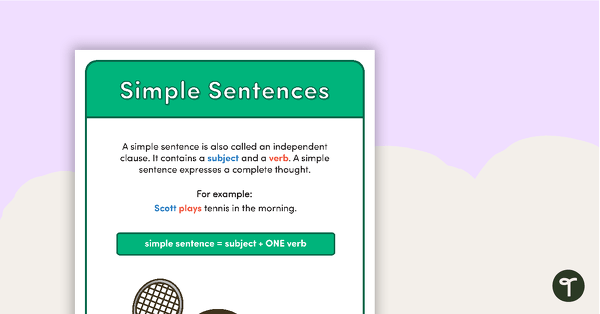
Types of Sentences Posters
A set of 7 posters outlining the structure of various types of sentences.
- Plus Plan
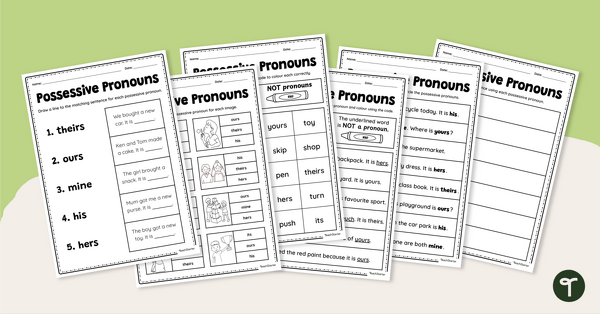
Possessive Pronouns Worksheet Pack
Use this possessive pronouns worksheet pack to get your students identifying and using these essential parts of speech.
- Plus Plan
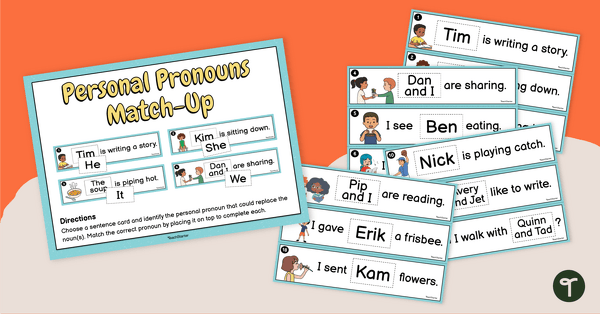
Personal Pronouns Matching Game
Familiarise your students with some of the most common personal pronouns using this fun matching game perfect for group work.
- Plus Plan
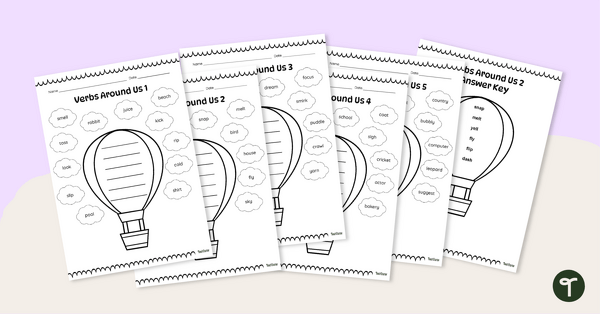
Verbs Around Us Worksheet Pack
Practise identifying verbs in a collection of words with this set of five verb worksheets.
- Plus Plan
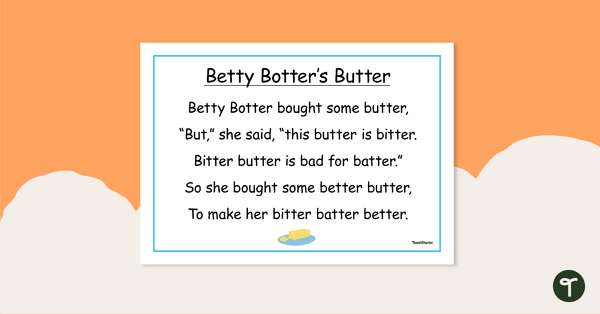
Betty Botter – Tongue Twister Poster
Use this “Betty Botter” tongue twister poster to teach your youngest students about word play and alliteration.
- Free Plan
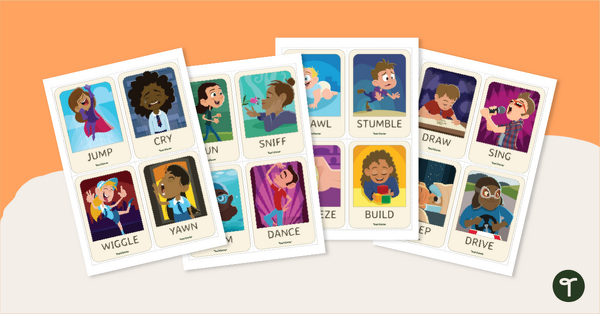
Verb Charades Active Game
Practise action verbs with this fun active charades game!
- Plus Plan
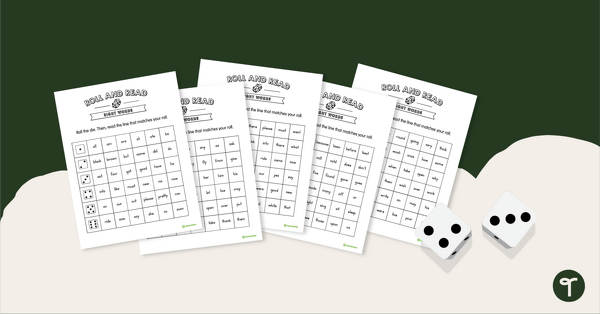
Roll and Read – Sight Word Game Pack
Practise reading sight words with this set of 5 Roll to Read Sight Word Game boards.
- Plus Plan
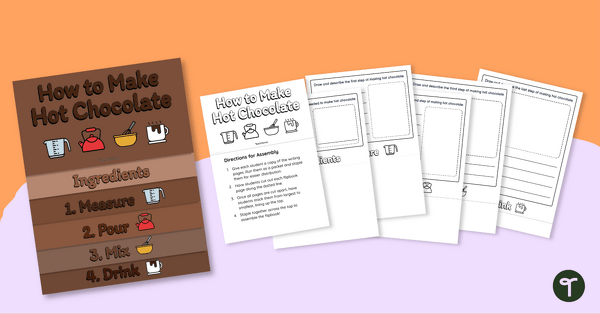
How to Make Hot Chocolate Flipbook
Use this “How to Make Hot Chocolate” procedural writing activity to help familiarise your students with the structural elements of procedure texts.
- Plus Plan
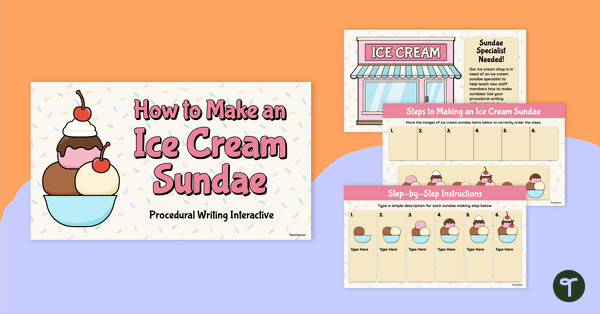
How to Make an Ice Cream Sundae Interactive Activity
Use this “How to Make an Ice Cream Sundae” procedural writing interactive activity to model the purpose, structural elements and language features of procedure texts.
- Free Plan
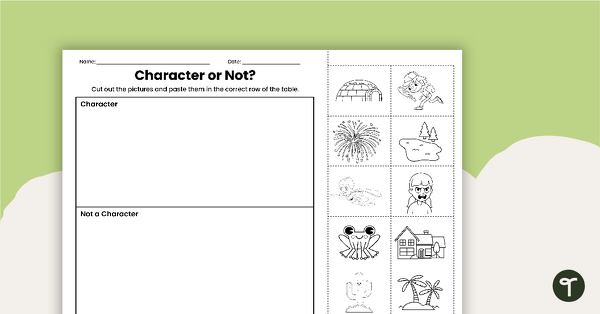
Character or Not? Cut and Paste Worksheet
Explore the difference between characters and non-characters with this cut-and-paste worksheet.
- Plus Plan
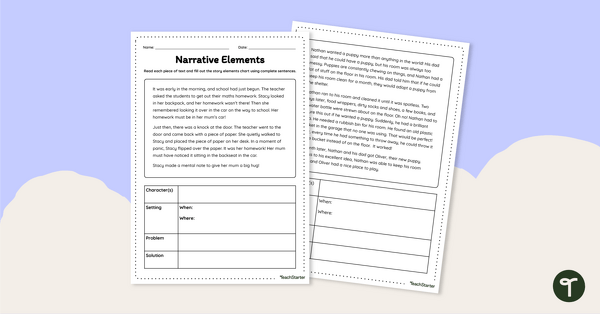
Narrative Elements - Worksheet
Practise identifying characters, settings, problems and solutions in fictional texts with this set of worksheets.
- Plus Plan
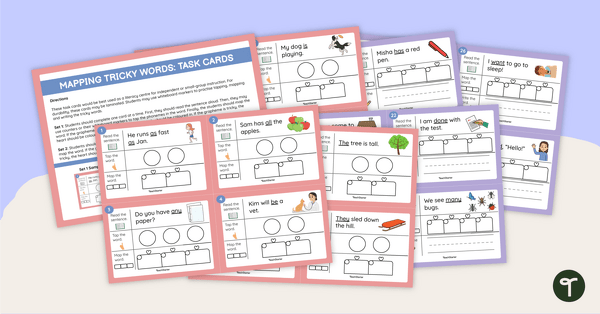
Mapping Tricky Words - Task Cards
Practise identifying the tricky parts in high-frequency words with these differentiated sets of tricky word mapping task cards.
- Free Plan
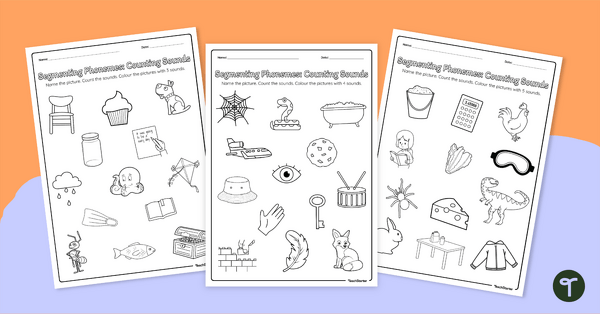
Count and Colour Sounds - Phoneme Counting Worksheets
Count and colour the images that have 3 phonemes, 4 phonemes and 5 phonemes in this worksheet set.
- Plus Plan
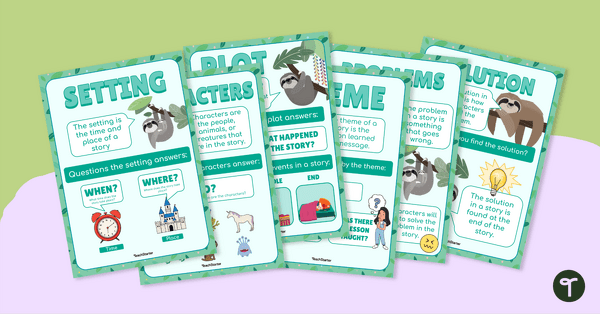
Story Elements Poster Set
Display these cute sloth-themed story elements posters when learning about narrative texts.
- Plus Plan
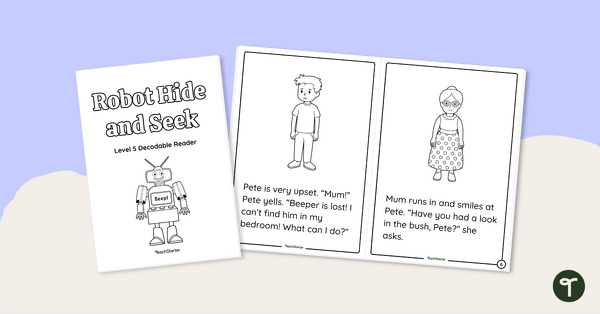
Robot Hide and Seek - Decodable Reader (Level 5)
Develop confident, successful readers with this phonics-based, printable decodable book.
- Plus Plan
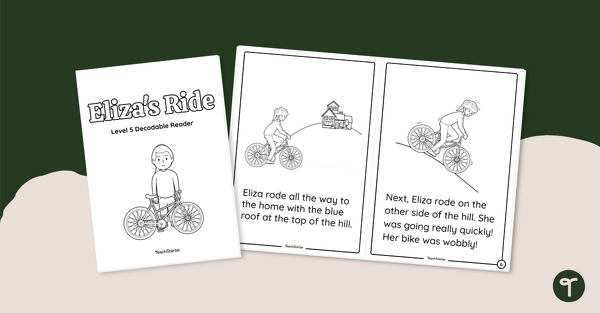
Eliza's Ride - Decodable Reader (Level 5)
Develop confident, successful readers with this phonics-based, printable decodable book.
- Plus Plan
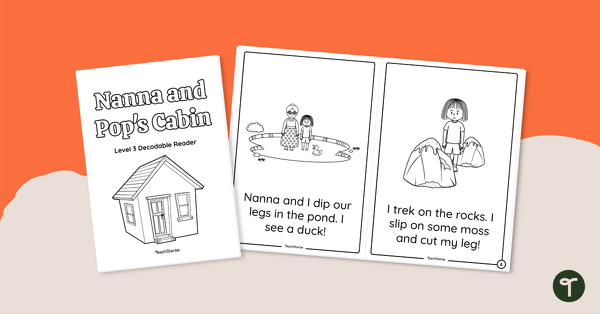
Nanna and Pop's Cabin - Decodable Reader (Level 3)
Develop confident, successful readers with this phonics-based, printable decodable book.
- Plus Plan
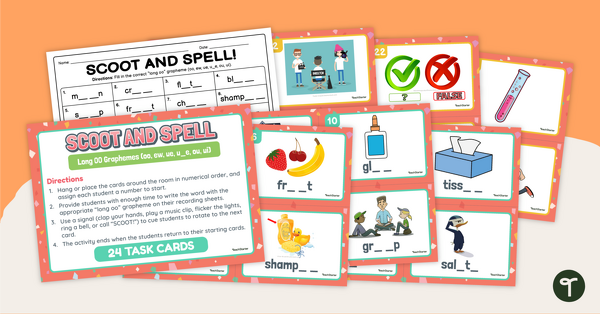
Long OO Graphemes - SCOOT! Task Cards
Explore words containing graphemes that make the ‘long oo’ sound with this active classroom game that will get your students moving!
- Plus Plan
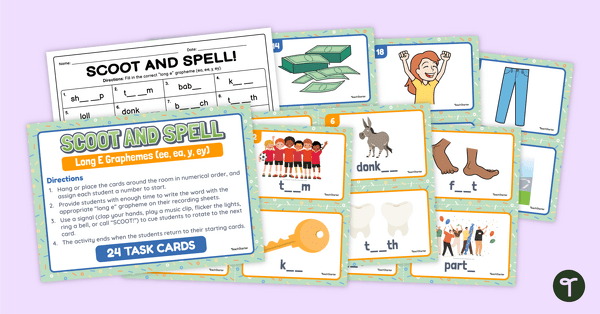
Long E Graphemes - SCOOT! Task Cards
Explore words containing graphemes that make the ‘long e’ sound with this active classroom game that will get your students moving!
- Plus Plan
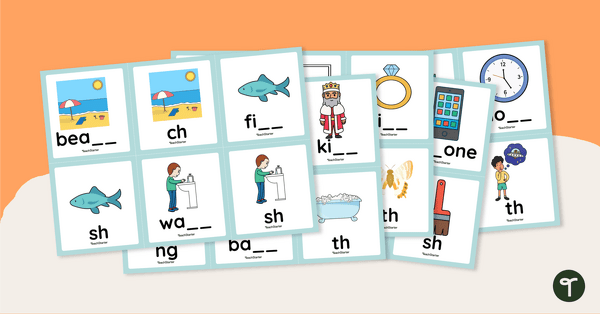
Consonant Digraphs Match-Up Activity
Complete words using the correct consonant digraph with this set of match-up cards.
- Plus Plan
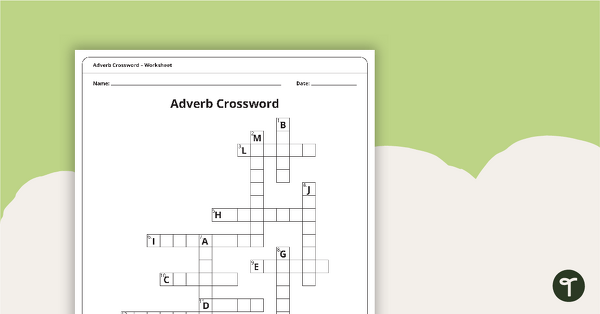
Adverb Crossword – Worksheet
A crossword where all the answers are adverbs.
- Plus Plan
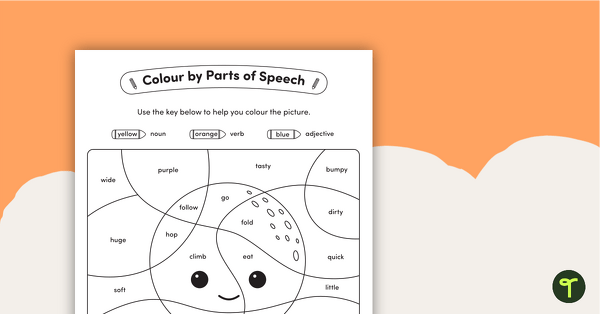
Colour by Parts of Speech - Nouns, Verbs & Adjectives - Octopus
Practise using parts of speech by colouring nouns, verbs and adjectives on the octopus.
- Plus Plan
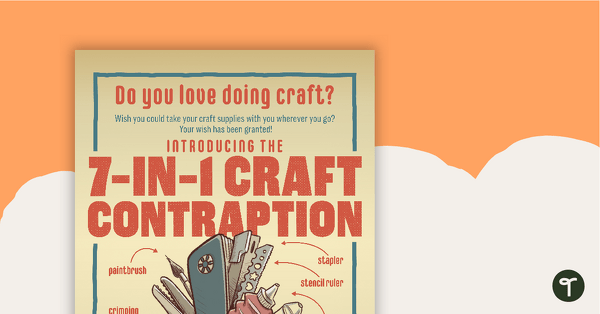
The 7-in-1 Craft Contraption – Worksheet
A comprehension worksheet for a fake advertisement from the Year 2 magazine (Issue 3).
- Plus Plan
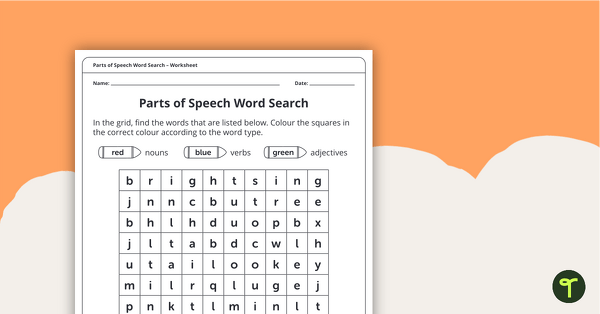
Parts of Speech Word Search (Nouns, Adjectives and Verbs) – Worksheet
A word search where students find and categorise nouns, adjectives and verbs.
- Plus Plan
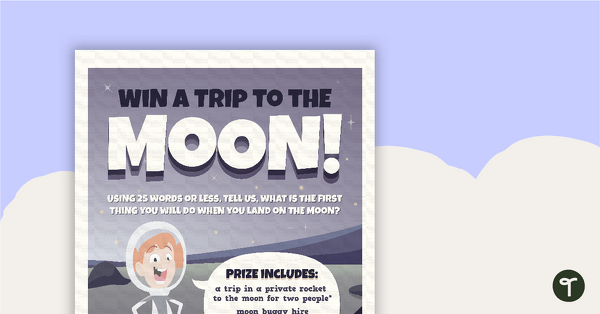
Win a Trip to the Moon – Worksheet
A comprehension worksheet for a fake advertisement from the Year 1 magazine (Issue 3).
- Plus Plan
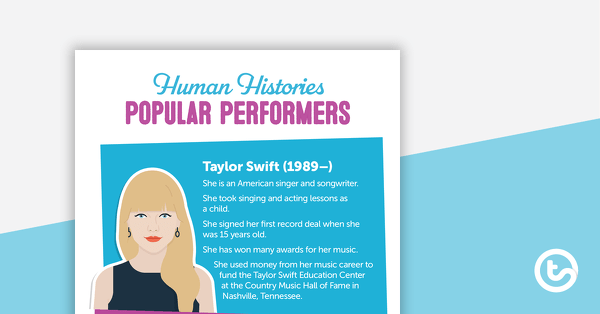
Human Histories: Popular Performers
A comprehension worksheet for a human histories article from the Year 1 magazine (Issue 2).
- Plus Plan
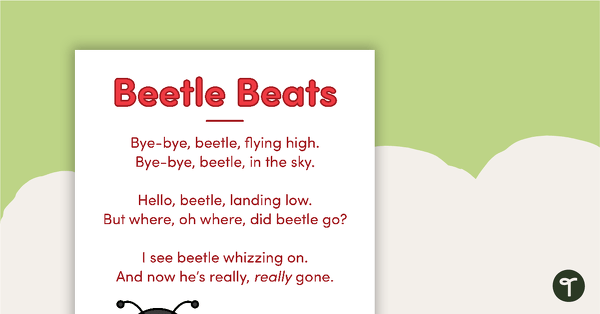
Beetle Beats Poem - Simple Rhyming Poetry Poster
A simple rhyming poem to develop vocabulary, reading, speaking and listening in the early years.
- Free Plan
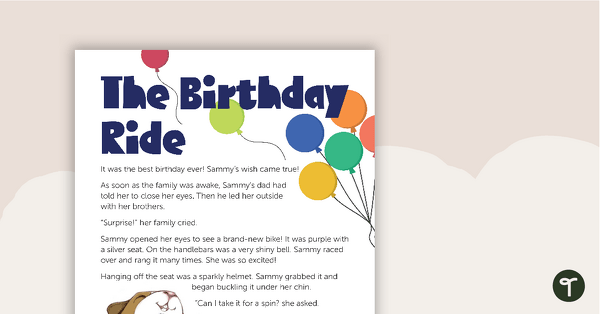
The Birthday Ride – Worksheet
A comprehension worksheet for a narrative from the Year 1 magazine (Issue 3).
- Free Plan
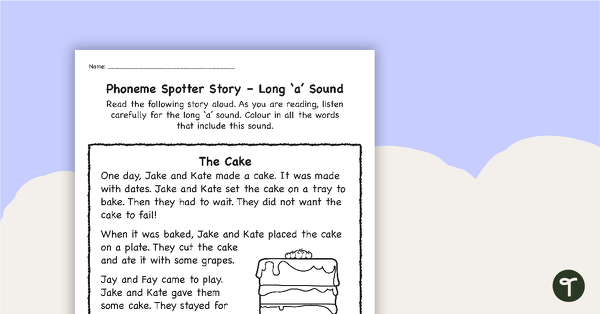
Phoneme Spotter Story - Long 'a' Sound
A decodable text featuring various graphemes that make the long 'a' sound.
- Plus Plan
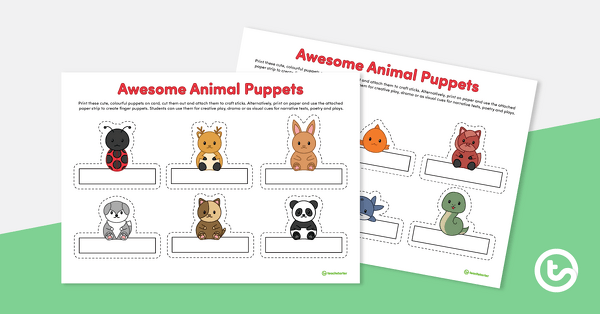
Adorable Animal Finger Puppets Template
Download a set of 12 animal finger puppets to use when teaching poetry, creating narratives and more.
- Plus Plan
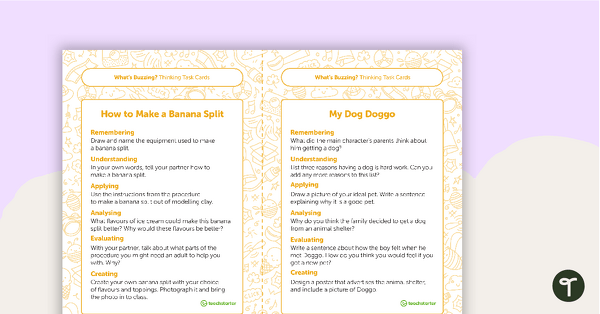
Year 1 Magazine - "What's Buzzing?" (Issue 1) Task Cards
A set of five literacy rotation task cards to be used in conjunction with Issue 1 of Teach Starter's Year 1 magazine.
- Plus Plan
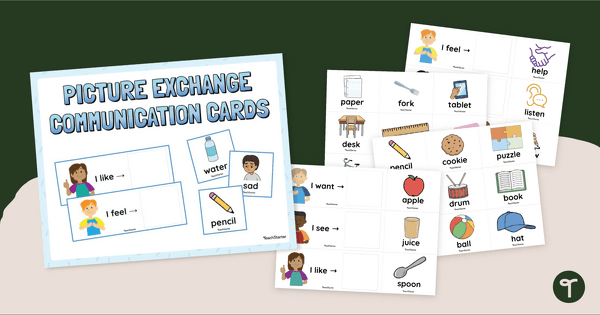
Picture Exchange Communication Cards
Enhance communication with Picture Exchange Communication (PEC) cards for children with autism spectrum disorder or other developmental disabilities.